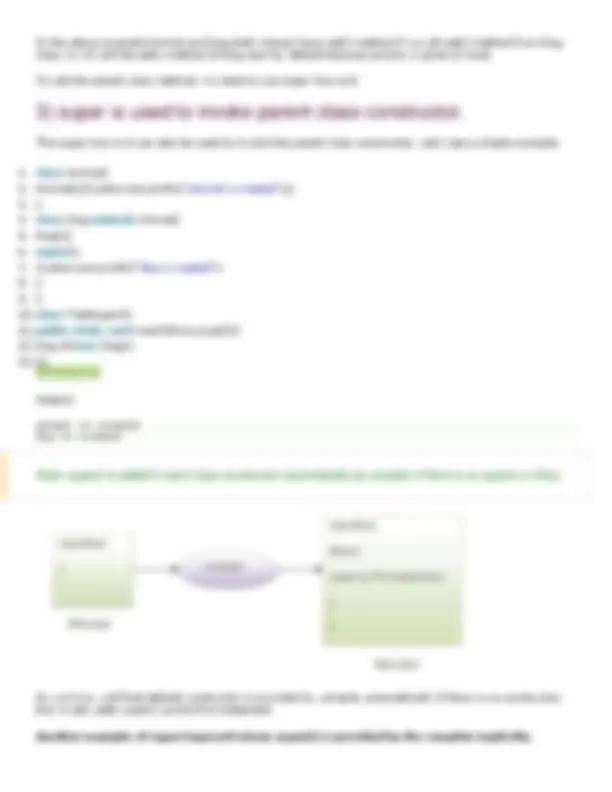




Study with the several resources on Docsity

Earn points by helping other students or get them with a premium plan


Prepare for your exams
Study with the several resources on Docsity

Earn points to download
Earn points by helping other students or get them with a premium plan
Community
Ask the community for help and clear up your study doubts
Discover the best universities in your country according to Docsity users
Free resources
Download our free guides on studying techniques, anxiety management strategies, and thesis advice from Docsity tutors
The super keyword in Java is a reference variable which is used to refer immediate parent class object. Whenever you create the instance of subclass, ...
Typology: Schemes and Mind Maps
1 / 4

This page cannot be seen from the preview
Don't miss anything!



The super keyword in Java is a reference variable which is used to refer immediate parent class object. Whenever you create the instance of subclass, an instance of parent class is created implicitly which is referred by super reference variable.
We can use super keyword to access the data member or field of parent class. It is used if parent class and child class have same fields.
The super keyword can also be used to invoke parent class method. It should be used if subclass contains the same method as parent class. In other words, it is used if method is overridden.
Let's see the real use of super keyword. Here, Emp class inherits Person class so all the properties of Person will be inherited to Emp by default. To initialize all the property, we are using parent class constructor from child class. In such way, we are reusing the parent class constructor.